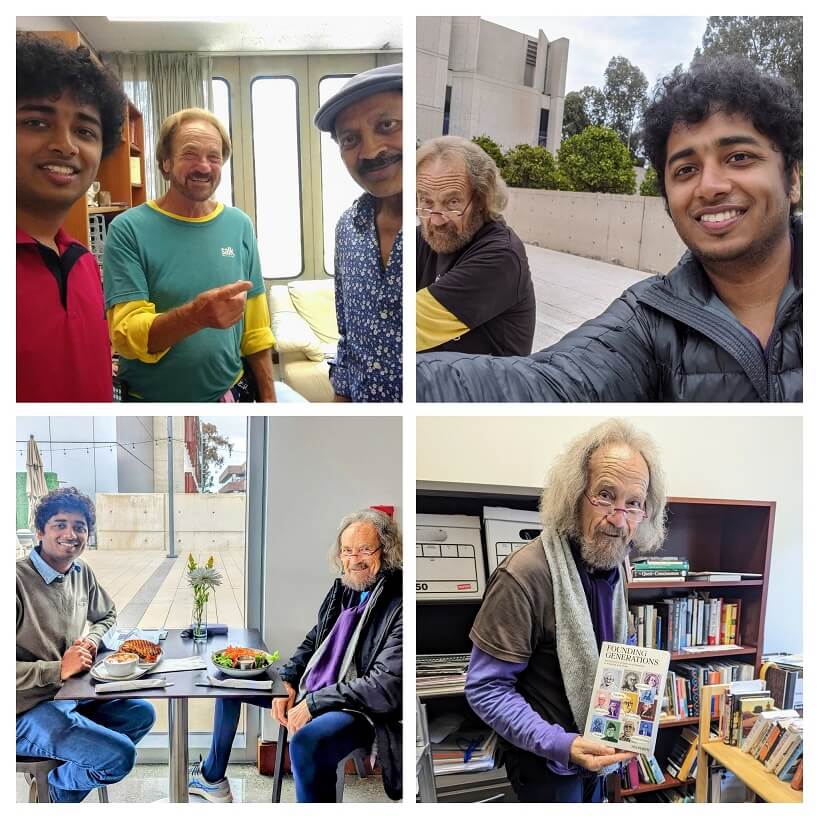The Grand Challenges of our times such as tackling Global Warming, eradicating extreme poverty, improving the quality of life in developing nations while promoting sustainable technologies, and providing access to clean water to everyone, among others, could only be addressed when the development of new technologies shall go hand-in-hand with the needs of local communities spread around the world. This is because no “one-size-fits-all” approach could become the panacea for the diverse (geographical, technological, sustainable, monetary, etc.) needs of people.
For example, the Prime Minister of India, Narendra Modi, has often talked about doubling farmers’ income. Such an ambitious goal may require innovators and engineers to genetically engineer newer kinds of climate-resistant seeds, build automatic machines capable of efficiently sowing, plowing, and harvesting, and utilize insights from satellite data to forecast weather patterns. Subsequently, realizing the larger vision would still require framing policies ensuring that these and other technological innovations will be welcomed by our farmers. That could only happen when these innovations could adapt to the local needs by being cost-efficient, not adversely impacting the village economy, and disturbing the social structure. This is exactly why innovators must appreciate the critical role of community-building i.e., forging bonds with local communities to understand their needs from their perspective. Technological innovation happening in silos disconnected from the ground reality cannot scale up as efficiently or rapidly as the one responding to the local needs of various communities.
Engineering education in India at most universities is evolving towards becoming more experiential and transdisciplinary. Unfortunately, this positive shift has been happening without providing our budding innovators and entrepreneurs the holistic view that it needs more than just innovation for a technology to percolate into society. There is a need to teach engineers and innovators in India the importance of forging social bonds with local communities, undertaking field trips to converse with diverse populations, conducting social surveys, understanding the needs of their potential future customers, and getting feedback on each iteration of the technology under development. These skills can really help our engineers understand and cater to the local needs of our people and become micro-entrepreneurs in due time.
Such social exercises could be streamlined if our universities start undertaking community-building schemes (by working with local NGOs, primary schools, health clinics, municipal corporations, etc.) in their vicinity. Not only will such collaborations help engineering students learn about and respond to local needs but the local communities will also prosper by getting exposed to the latest technological advancements. Thus, the engineering curriculum in our universities must be reimagined to include a mandatory community-building component for which the resources must be facilitated by these institutions.
Do you know what is the most significant factor causing socio-economic upliftment? No, it is probably not education, money, IQ, or work experience. According to a recent landmark research published in Nature recently by Professor Raj Chetty of Harvard University, it may be the strength of an individual’s social network and community. This is because access to information about the latest opportunities and technologies plays a crucial role in training people for the future in our rapidly evolving world. Research by Jon Yates in the United Kingdom has also shown that exposure to diverse perspectives and people belonging to different communities helps break down the barriers of religion, language, ethnicity, culture, etc. Thus, forging strong bonds between our universities and local communities will not only help our engineers tackle the Grand Challenges of our times by catering to local needs through technological innovations but will also help to uplift the marginalized sections of our society.

 Roger Bingham Obituary: Friend, Educator, Storyteller
Roger Bingham Obituary: Friend, Educator, Storyteller